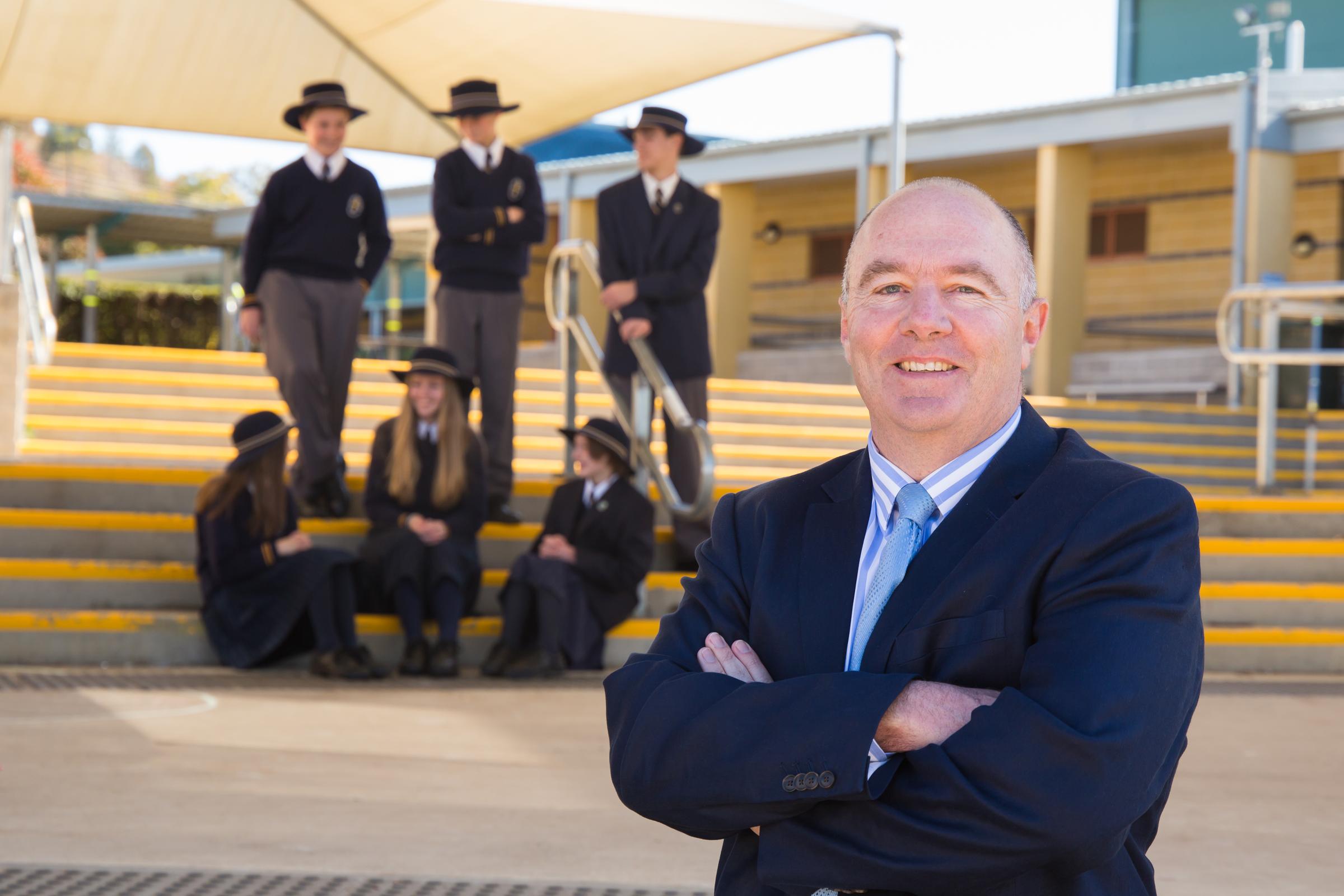Assistant Principal - Pastoral Care

The Higher Purpose of the HSC
In the 1970s a Stanford University professor ran an experiment on delayed gratification. Young children were given the option of having one small treat immediately or two treats if they were prepared to wait (15 minutes). Adults would leave the room and children had the choice to take the marshmallow or wait and receive two. The study then tracked these children as they became adults. The results suggested that those children who were able to delay gratification tended to have better life outcomes – educational attainment, higher income, better health, lower rates of divorce, lower rates of addiction. They tended to have highly desirable qualities such as confidence, persistence, and the capacity to deal with frustration.
Noted scientist and author, Daniel Goleman argues that “Goal-directed, self-imposed delay of gratification is perhaps the essence of emotional self-regulation: the ability to deny impulse in the service of a goal, whether it be building a business, solving an algebraic equation, or pursuing the Stanley Cup.” The ability to deny ourselves something that we want is a high level skill that indicates the reasoning part of our brain is able to be successful over the emotional side. It is part of what is termed emotional intelligence, something that we can all grow and develop with deliberate practice.
To me, this is one of the great benefits of completing the HSC – it provides an opportunity for young people to develop key qualities that will stay with them for their adult life. Yes, it is a world class academic credential and a useful stepping stone to tertiary education, but the qualities and capabilities a young person develops from completing this challenging two years of study has the potential to set them up for life. I have been urging the Year 12 students to understand that their HSC results and ATAR will not define who they are – it is not the marks that matter. But how they got there, how they achieved the result is the most significant part of the process.
To achieve your personal best, is challenging when you are turning 18 and can drive a car and start to go out and have romantic interests. How can sitting down and writing an essay about Jane Austen compare to going to a see Justice Crew at the Imperial Hotel? Of course it doesn’t, and this is where having the capacity to delay gratification is so critical to maturing and becoming an adult who can set goals and do your best under pressure, particularly when there are more interesting social events to enjoy.
Einstein said: “it’s not that I’m so smart, it’s just that I stay with problems longer. Most people say that it is the intellect which makes a great scientist. They are wrong: it is character.”
In one word there it is, there is the higher purpose that can be achieved from challenging ourselves in the HSC: “character” – that is why students should embark on attaining the HSC, because it is the opportunity to further develop their learning character which will influence the way they will approach their adult life, and, I would argue, influence the quality of life they will have.
Young people are living in a change of era and with change comes difficulty and uncertainty and to cope confidently with such circumstances they must become powerful real-life learners.
The HSC is going to challenge them to think in different and complex ways – they are going to expand their capacity to think critically and creatively and ask questions and create their own meanings.
They are going to need to make plans and follow a path logically to achieve a goal and they will need to reflect and evaluate how they have gone and do better the next time and the next and the next. But they shouldn’t be frightened of making mistakes because that is how we all learn and they’ll become mentally tough, resilient, develop grit so that when they are struggling (because this is what happens in life) they’ll find a way to succeed. And they’ll work with others and learn how to share and grow together because as John Donne told us ‘no man is an island’.
Most importantly they’ll develop a work ethic, they’ll learn the value of hard work, of self-discipline because ultimately these are the hallmarks, the characteristics of an adult who is able to make their way in the world.
This is what Einstein meant when he said ‘character’. And the most exciting thing about this is that we are all able to develop this learning character. None of these qualities or dispositions are connected to genetics – they can all be acquired through deliberate practice, practice, practice and more practice.
One of my great inspirations is Coach Eric Taylor from the television series, Friday Night Lights. There is a wonderful moment where he is working with a young man who has come from a poverty-stricken background of crime and drugs and he is just beginning to gain success in football and his father comes home from prison and turns his life upside down. And the boy is frustrated with Coach, he says in great anger and frustration “you want me to be better than everyone else but I don’t know how to be better”. And Coach Taylor says, “I didn’t say you got to be better, I said you’ve got to try. It is all in the try.”
Along with ‘character’, that three letter word ‘try’, encapsulates what we want for our students. That is their higher purpose and if they keep that at the forefront of their mind, that is what will sustain them through the tough times. It is in the cauldron of the HSC that they will form the character that will empower them to shape the rest of their life.
Mr Mick Larkin - Assistant Principal - Pastoral Care




